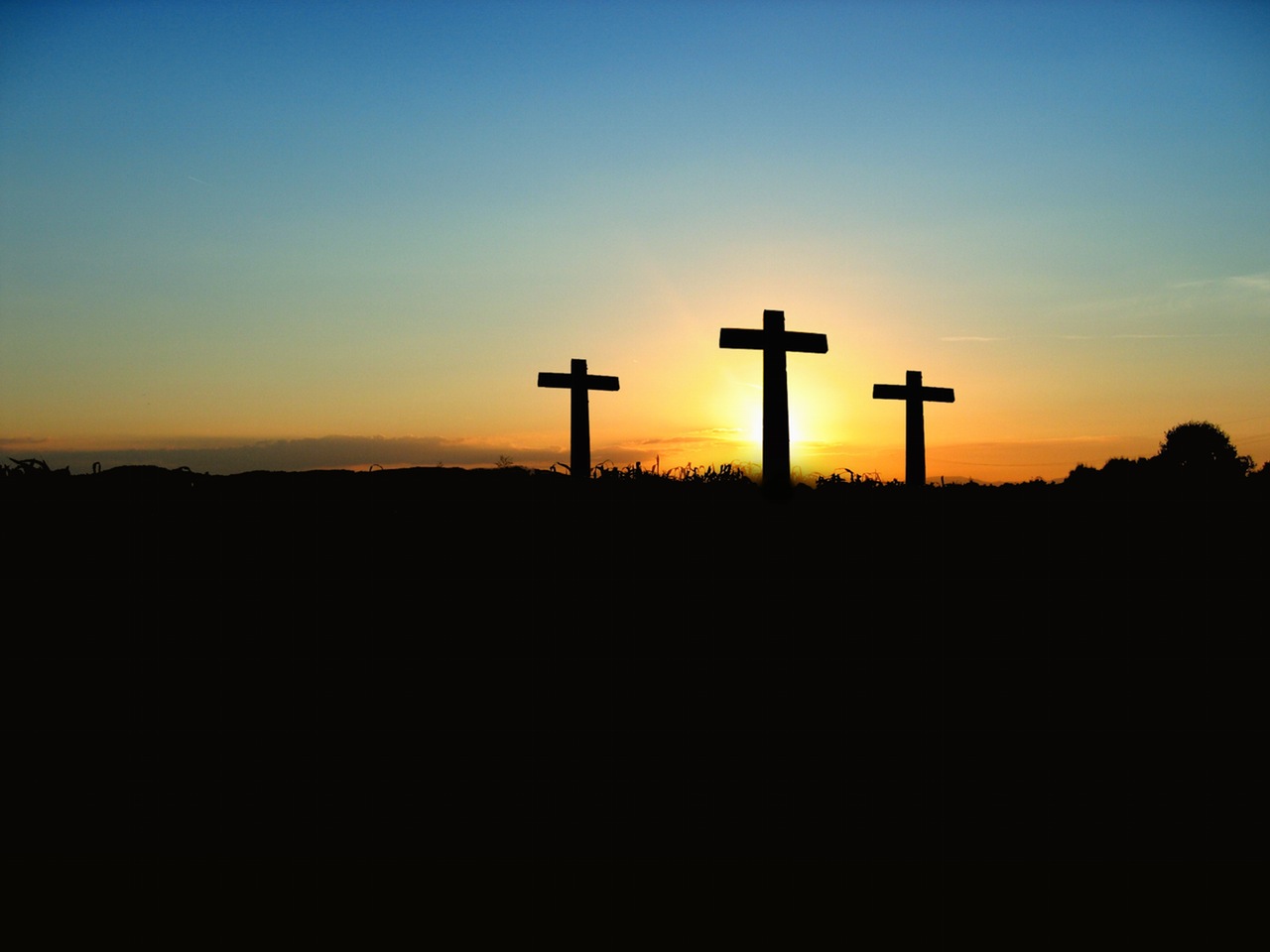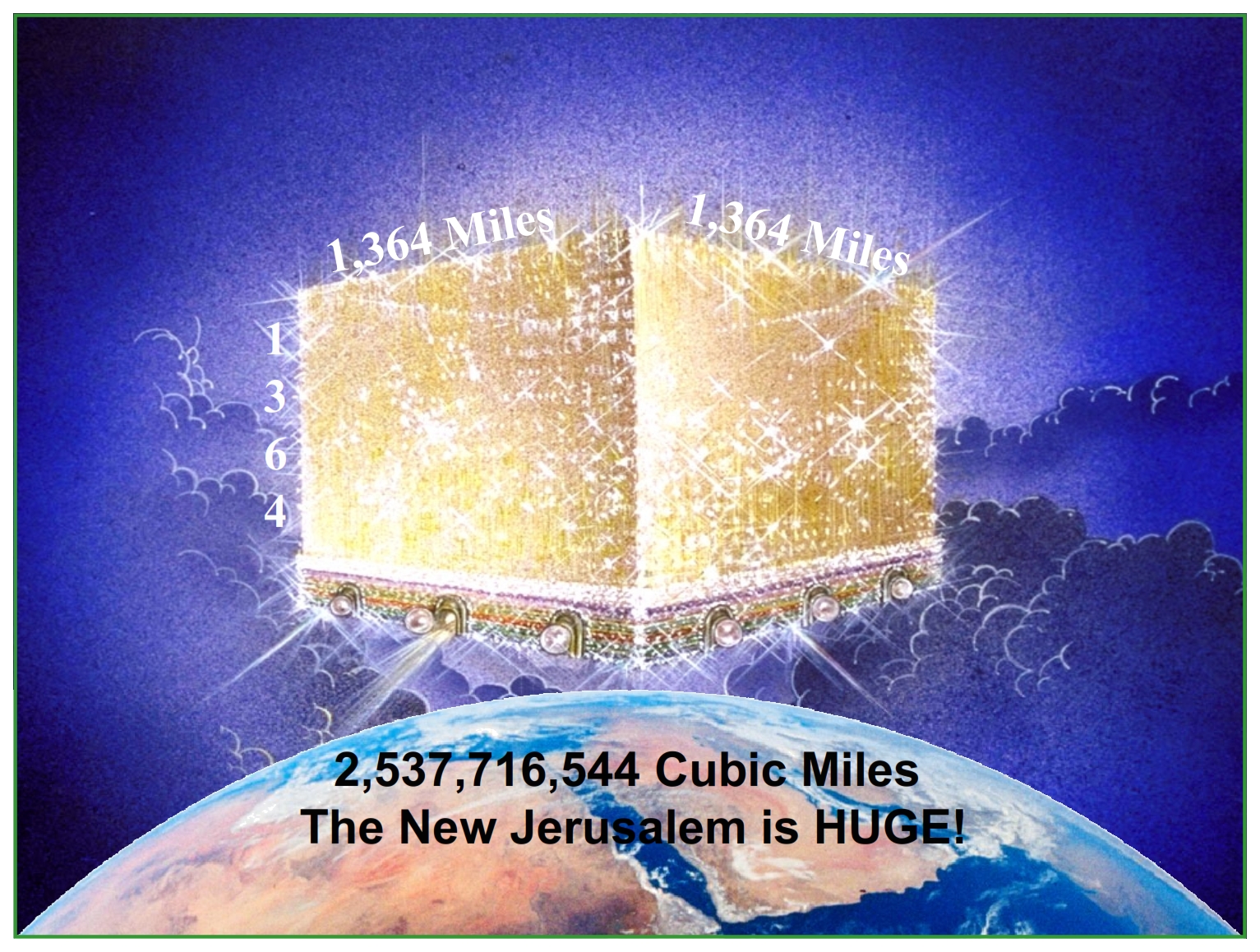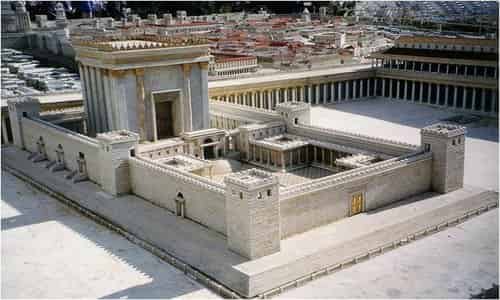 Since gravity is true, regardless of our ability to jump we always come back to the ground (I return a bit quicker than most since I can't jump very high). If we drop something, it goes down rather than up. If we trip, we fall unless we regain our balance in time. Since gravity exists, certain things naturally flow from that.
Since gravity is true, regardless of our ability to jump we always come back to the ground (I return a bit quicker than most since I can't jump very high). If we drop something, it goes down rather than up. If we trip, we fall unless we regain our balance in time. Since gravity exists, certain things naturally flow from that.
If Jesus can predict the timing of His rising from the dead, it follows that we can trust the claims He made about Himself.
Likewise with Jesus’ resurrection, since He rose from the dead certain other things are necessarily true as well. If Jesus can predict the timing of His rising from the dead, it follows that we can trust the claims He made about Himself. It's an unbreakable chain.
Think about it for a moment, if He indeed walked out of the tomb on the third day exactly as He predicted, and we know for certain He did, this adds an undeniable authority to everything else He said does it not? It validates beyond any doubt all His many other assertions. The empty grave establishes the credibility and supernatural character of Jesus; He is no ordinary man.
Let’s consider some of the key claims Jesus made about Himself in this light.
Jesus Claimed to Be God in the Flesh
I want to revisit Jesus’ claim to be God as this is crucial to building my case for why I believe what I do. In John 10:30 Jesus made this remarkable statement, “I and the Father are one.” The Jews who heard these words immediately picked up rocks with which to stone Him to death because they recognized Jesus was claiming equality with the Lord God of the Old Testament. They regarded His claim as the height of blasphemy.
In John 14:8, Philip said this to Jesus, “Lord, show us the Father, and it is enough for us.” In response, Jesus told his disciple he had already seen the Father, “Have I been with you so long, and you still do not know me, Philip? Whoever has seen me has seen the Father” (v. 9). Jesus claimed to be the perfect revelation of His Father in heaven. He claimed to be God in the flesh.
When we look at Jesus, we see an exact reflection of our Heavenly Father who by His word created the universe out of nothing.
The writer of Hebrews put it this way, “He is the radiance of the glory of God and the exact imprint of his nature” (Heb. 1:3). When we look at Jesus, we see an exact reflection of our Heavenly Father who by His word created the universe out of nothing.
Can you see how Jesus’ resurrection plus His claim to be God in the flesh adds unmistakable value to all His other assertions?
Jesus Claimed to be the Only Way of Salvation
Jesus’ claim to be the only way of salvation is perhaps His most controversial one today. People recognize Jesus as someone great, but dismiss the necessity of putting their faith in Him alone for their salvation. They do not see Him as necessary for their lives.
Jesus made this claim about Himself in John 14:6, “I am the way, and the truth, and the life. No one comes to the Father except through me.” Perhaps the most recognized verse in all of the New Testament, John 3:16, echoes this exact same exclusivity, “For God so loved the world, that he gave his only Son, that whoever believes in him should not perish but have eternal life.” Jesus said it’s only those that believe in Him that do not experience God’s wrath, but receive eternal life
The brutality of Jesus’ death adds further weight to this truth. If we could save ourselves by keeping the Law, being moral, or by our good works, do you really think that the Father would have allowed His Son to endure such extreme agony on the cross? Of course not!
If there was any other way of salvation, do you not think the Father would have spared His only Son such a brutal and horrendous death? Absolutely!
Jesus suffered and died precisely because there was no way for the Father to provide eternal life apart from faith in Christ and His death in our place.
Jesus Claimed to be the Resurrection and the Life
In the next claim we will consider, Jesus again emphasizes that He alone is the way of salvation. In John 11:25-26 Jesus said this about Himself, “I am the resurrection and the life. Whoever believes in me, though he die, yet shall he live, and everyone who lives and believes in me shall never die. . . .” In claiming to be “the resurrection and the life” Jesus promises that all who believe in Him will live, even if they die.
We have no ability whatsoever to save ourselves; only He is capable of bringing us safely to eternity.
Do you see the essential relationship between this claim and Jesus’ resurrection? If Jesus’ bones are buried somewhere in Israel, then our belief that we will rise again to new life someday is also buried with them. When Jesus physically walked out the grave, He demonstrated His ability to give eternal life to those who believe in Him.
This is why only He can offer salvation to a lost humanity. We have no ability whatsoever to save ourselves; only He is capable of bringing us safely from this life to eternity. That's why it's so necessary that we put our trust solely in Him.
Those who believe in Jesus will someday rise again to a glorious and wonderful life. Jesus’ resurrection guarantees this for all who truly know Him as their Savior.
Jesus Claimed to be the Long Awaited Messiah
If I was a Jewish Christian living in the first century AD, this would likely have been the first claim of Jesus that I would have mentioned. Jesus claimed to be the long awaited Messiah spoken of throughout the entire Old Testament. He is the Christ that the prophets, beginning with Moses, said would come to Israel one day.
The woman knew of the hope for a Messiah and Jesus simply responded saying that He was the One, the hope of Israel.
Interestingly, Jesus first claimed to be the long awaited Messiah while talking with a Samaritan woman, “The woman said to him, “I know that Messiah is coming (he who is called Christ). When he comes, he will tell us all things.” Jesus said to her, ‘I who speak to you am he’” (John 4:25-26). The woman knew of the hope for a Messiah and Jesus simply responded saying that He was the One, the hope of Israel.
This sampling of Jesus’ key claims about Himself helps us understand why the resurrection is so foundational to all that we believe. The remarkable claims Jesus made about Himself are true because Jesus walked out of the grave on the third day, exactly as He predicted. If not for His resurrection, all of His claims would be meaningless because He could not be God. And if not God, then incapable of keeping the many wonderful promises He made to us.
However, because He rose from the dead, we have hope. He is our risen Savior.
These claims of Jesus are building blocks upon the sure foundation of our faith, the resurrection of Jesus. From here, we will keep on building. In the coming posts, we will take this a step further; we will start looking at some of the implications of Jesus claims. My next post will seem a bit off topic at first, but it will soon be clear how it relates.



 Recently, we went with friends to see the movie In Our Hands: Battle for Jerusalem. The movie showed the background to and the fight for the city during the Six Day Way in 1967. Perhaps the most striking aspect of the movie was the joy of the soldiers upon reaching the ancient outer wall of the temple.
Recently, we went with friends to see the movie In Our Hands: Battle for Jerusalem. The movie showed the background to and the fight for the city during the Six Day Way in 1967. Perhaps the most striking aspect of the movie was the joy of the soldiers upon reaching the ancient outer wall of the temple. As I read Paul David Tripp’s devotion today about “eternity amnesia,” I was struck by how well his comments help us understand the madness we see around us in the world today and also, sadly, to some degree in the church.
As I read Paul David Tripp’s devotion today about “eternity amnesia,” I was struck by how well his comments help us understand the madness we see around us in the world today and also, sadly, to some degree in the church. Despite being bound to a wheelchair as the result of a traffic accident, he was the most joyous, Spirit-filled believer I had seen up to that point in my life. I remember Paul Lundgren’s
Despite being bound to a wheelchair as the result of a traffic accident, he was the most joyous, Spirit-filled believer I had seen up to that point in my life. I remember Paul Lundgren’s In the aftermath of the 2016 election, we continue to see rioting and violence spread across America. Chants of “not my president” and “not my country” are common. Some of the demonstrations have turned anti-American with the burning of American flags and even deadly as a protest blocking traffic kept an ambulance from getting to a hospital in time to save a man’s life. Regrettably, attacks persist on both sides.
In the aftermath of the 2016 election, we continue to see rioting and violence spread across America. Chants of “not my president” and “not my country” are common. Some of the demonstrations have turned anti-American with the burning of American flags and even deadly as a protest blocking traffic kept an ambulance from getting to a hospital in time to save a man’s life. Regrettably, attacks persist on both sides. In the aftermath of the election, I believe the biggest mistake we can make as followers of Christ is to put our hope in President-elect Donald Trump or think the rapture is not close because of his election. I am glad he won, but we dare not put our trust in him.
In the aftermath of the election, I believe the biggest mistake we can make as followers of Christ is to put our hope in President-elect Donald Trump or think the rapture is not close because of his election. I am glad he won, but we dare not put our trust in him. With my little transistor radio in hand, I followed every pitch. I heard the crack of the bat as Hank Aaron hit a deep fly ball. I was sure he had ended Ken Holtzman’s bid for a no-hitter; I remember the disappointment in the voice of the radio announcer as he described what he believed would be a homerun for Aaron. However, the wind was blowing in that day at Wrigley Field.
With my little transistor radio in hand, I followed every pitch. I heard the crack of the bat as Hank Aaron hit a deep fly ball. I was sure he had ended Ken Holtzman’s bid for a no-hitter; I remember the disappointment in the voice of the radio announcer as he described what he believed would be a homerun for Aaron. However, the wind was blowing in that day at Wrigley Field. I was terrified! Had they left without me?
I was terrified! Had they left without me? Before settling into my new calling as a writer, my wife Ruth and I decided to take a road trip to celebrate my retirement from a long career as a financial analyst. We greatly looked forward to our trip: to our stay at a bed and breakfast in the mountains near Asheville, North Carolina and then to our time exploring Savannah, Georgia.
Before settling into my new calling as a writer, my wife Ruth and I decided to take a road trip to celebrate my retirement from a long career as a financial analyst. We greatly looked forward to our trip: to our stay at a bed and breakfast in the mountains near Asheville, North Carolina and then to our time exploring Savannah, Georgia. What causes fear in us at times regarding the rapture? Does our apprehension arise from its abrupt nature or its unexpected timing? Does the unknown or the supernatural cause anxiety to rise within us? Perhaps we do not want our dreams for this life to end so soon.
What causes fear in us at times regarding the rapture? Does our apprehension arise from its abrupt nature or its unexpected timing? Does the unknown or the supernatural cause anxiety to rise within us? Perhaps we do not want our dreams for this life to end so soon. “Israel’s future guarantees our salvation.” (Amari Tsarfati, prophecy speaker)
“Israel’s future guarantees our salvation.” (Amari Tsarfati, prophecy speaker) This time the story jumped out at me; I did not initially overlook it as I did with the last temple news item, not even for a moment.
This time the story jumped out at me; I did not initially overlook it as I did with the last temple news item, not even for a moment. It happens with such frequency we sometimes miss it. We see a news story that speaks to our living in the last days and we pay little attention to it. Twenty years ago we might have fallen off our chairs reading it in the newspaper; now we quickly scroll past it on our smartphones.
It happens with such frequency we sometimes miss it. We see a news story that speaks to our living in the last days and we pay little attention to it. Twenty years ago we might have fallen off our chairs reading it in the newspaper; now we quickly scroll past it on our smartphones. She only had moments left to live.
She only had moments left to live.
 In his book Desire, John Eldredge quoted Pascal as saying, “Our imagination so powerfully magnifies time, by continual reflections upon it, and so diminishes eternity . . . for want of reflection . . . we make a nothing of eternity and an eternity of nothing.” Eldredge then expanded on that sentiment, “We make a nothing of eternity by enlarging the significance of this life and by diminishing the reality of what the next life is all about.”
In his book Desire, John Eldredge quoted Pascal as saying, “Our imagination so powerfully magnifies time, by continual reflections upon it, and so diminishes eternity . . . for want of reflection . . . we make a nothing of eternity and an eternity of nothing.” Eldredge then expanded on that sentiment, “We make a nothing of eternity by enlarging the significance of this life and by diminishing the reality of what the next life is all about.”